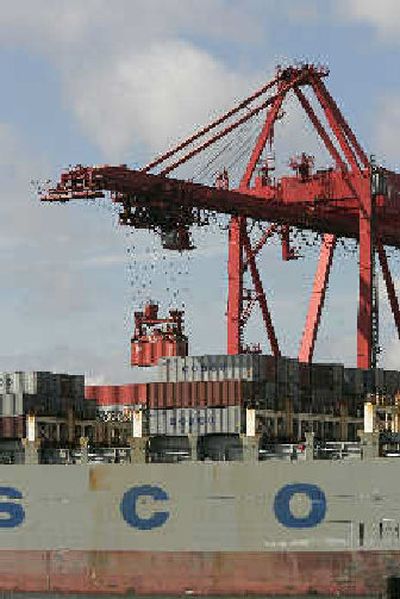U.S., China reach deals on trade

WASHINGTON — The United States has won a string of commitments from China aimed at narrowing a record trade gap, but the White House put Beijing on notice Wednesday the promises must be followed by action.
“It’s progress and … now we will look forward to seeing results,” said White House press secretary Scott McClellan.
President Bush pressed the same message Wednesday morning in a meeting with Chinese Vice Premier Wu Yi, who led the Chinese delegation to the Washington meetings between the two sides that led to a series of deals announced Tuesday. Bush thanked her for “efforts to make U.S.-China trade more equitable” but pressed for Chinese President Hu Jintao, during his visit to the White House next week, to “explain to the American people how China will meet the challenge of rectifying global economic imbalances,” McClellan said.
U.S. industry groups also said the real test of the agreements could come during the talks between Bush and Hu next Thursday.
The top economic officials meeting in a leadup to those discussions reached agreement in which China pledged to lift its ban on American beef, crack down on the sale of pirated computer software and begin negotiations on allowing foreign firms to compete for Chinese government contracts.
American industry groups were generally pleased with the results of an annual meeting of the Joint Commission on Commerce and Trade, which was created in 1983 to resolve trade frictions.
Frank Vargo, vice president for international trade at the National Association of Manufacturers, called the deals announced Tuesday “incremental contributions to the removal of trade obstacles.”
But he said he was hopeful that they will set the stage for a significant breakthrough during the Bush-Hu summit next week on the issue of currency.
American manufacturers contend that China is depressing the value of its currency by as much as 40 percent to make Chinese goods cheaper for U.S. consumers and American products more expensive in China.